Andrew Cachia is studying Veterinary Medicine in Budapest, where his journey began. "I had just finished a 24 hour shift outside Budapest. While waiting for my train on the platform, three Hungarians came up to me and began antagonising me. I don't speak Hungarian, however one of them mentioned Syria. As soon as this happened, I took a better look at myself. I had a beard, a sleeping bag and looked run down after a 24-hour shift. They thought I was a refugee. I began walking away and they started laughing at me, spitting at me- they tried to provoke a reaction. My train pulled up and I got in. At that point I realised that refugees have to live through this each day. It wasn't pretty, I was lucky enough to be going home to a warm shower, but refugees would have had to spend the night in that sleeping bag".
The general feeling in Hungary is not welcoming, he said. "Its not compassionate. They just don't want them there. I've heard stories of police beating refugees. But then some would say 'that's eastern Europe for you'. It's not, I've heard so many stories of the Serbians treating refugees well and helping them".
Andrew then travelled to Skala Sikamineas in Lesvos and volunteered with Lighthouse Relief for nine days. Lighthouse Relief, a Swedish organisation operating with volunteers from all over the world.
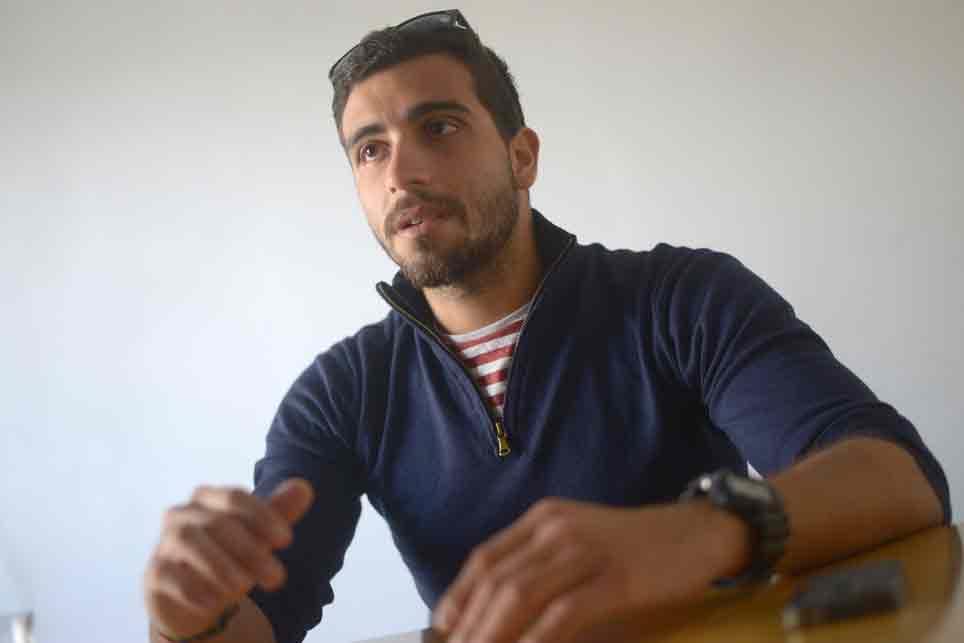
The majority of refugee boats arrive at night, so during the day, the group would conduct beach clean-up operations, to remove the piles upon piles of deflated rubber dinghies and lifejackets.
"They cross from Turkey in these poorly made rubber dinghies, As soon as they touch shore; they burst, flatten and cover the beach. I've seen a beach covered, a foot to two feet deep, in flattened rubber boats. This, in addition to the lifejackets littering the ground. There's actually a place called the lifejacket graveyard in Lesvos".
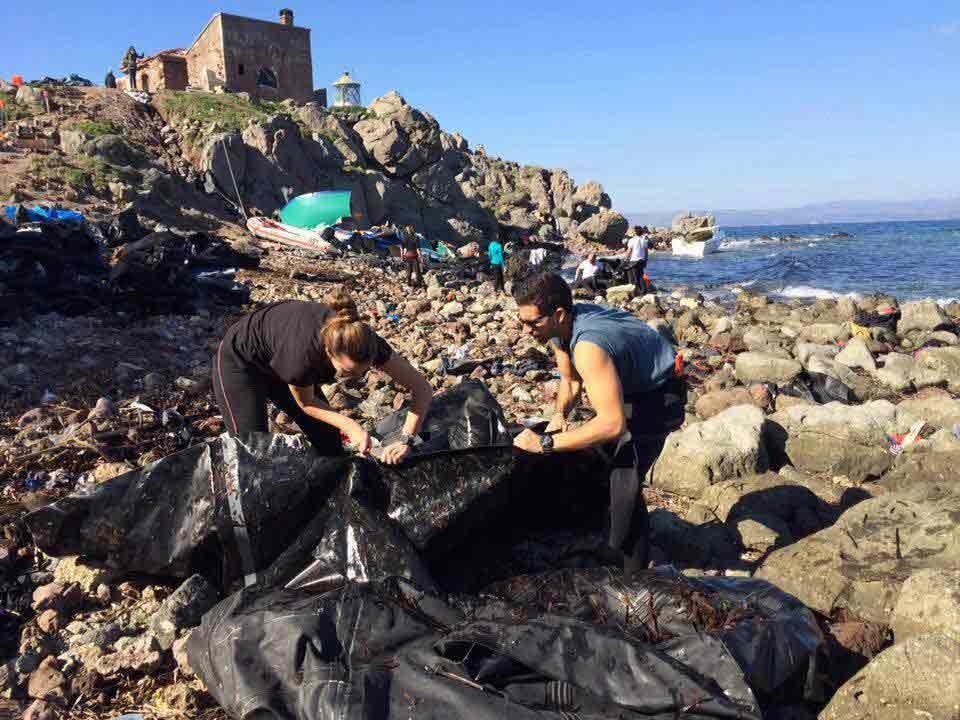
Cleaning up
During their clean-up operations, the volunteers would cut up the rubber dinghies, and load the rubbish on a boat. They would then transport it to another beach where the municipality would proceed to pick it up.
"This is done for a number of reasons. Firstly, for the morale of refugees, so they would not see piles of shipwrecked boats and lifejackets when landing. Another reason is for environmental purposes and another, is to stop attracting boats to the more dangerous landing spots".
The worst spot lies beneath a lighthouse. "It's on a cliff edge, but because the lighthouse is still operational, boats are generally attracted to it. They shipwreck on the cliff face and it's hard to rescue them from that site. While cleaning beaches I've found passports, Korans and children's toys. Those were the hardest things to see, children's toys - toys brought over from their past lives and left there. I've also found medication and family photos".
Andrew said that the Greek government stopped the voluntary organisation from cooking warm meals. "They used the excuse of 'sanitation'. Now we can only give them warm food if they are not prepared on site," he said.
The ethos of the Lighthouse Relief is to make refugees as welcome as possible. The camp had tents for women and children, tents for men. A tent insulated with lifejackets where those with hypothermia were treated was also pitched. Changing rooms with clothes were available and a fire pit were also built, where we would sit around the fire conversing with the refugees, trying to make them as comfortable as possible. They would only stay in the camp for around 3 hours before being picked up and taken to the main camp run by the Greek authorities".
While at the main camp, they would be fingerprinted and within a few days are moved elsewhere in Greece.
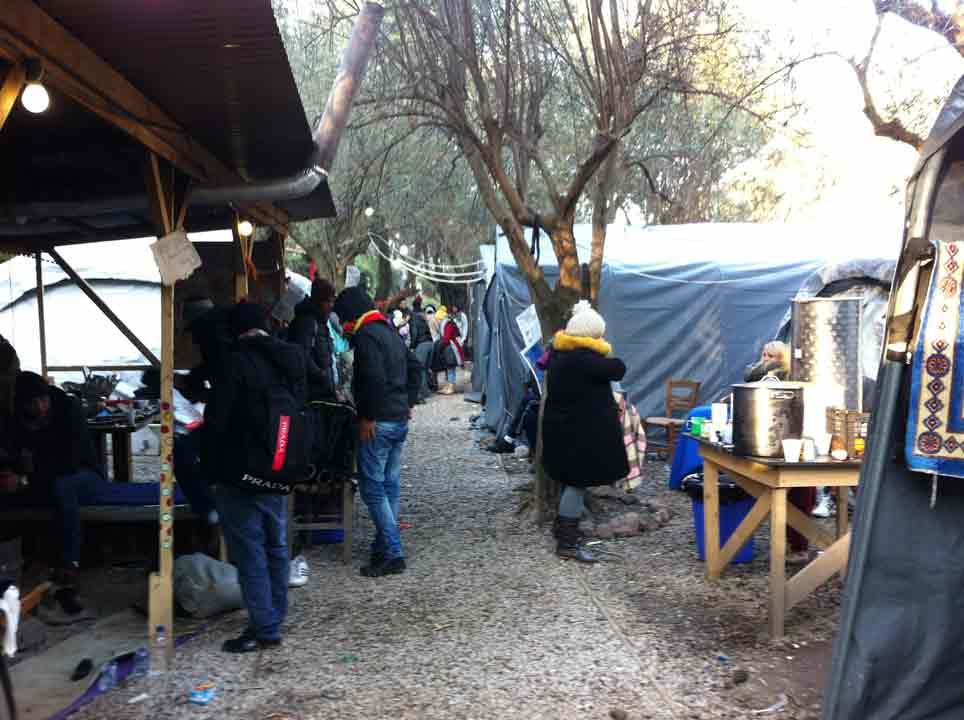 A lull in arrivals
A lull in arrivals
There's a bit of lull in the number of refugee arrivals in Lesvos. "NATO introduced Battleships in the Turkish straights, and Frontex patrols have picked up. When I was there, the island would see around 10 boats per night, each with around 50 refugees per boat. Refugees would pay between €1,500 to €3,000 per head for the 8 km trip. The price depends on the boat. If a refugee would pay €1,500 they would use a black zodiac dinghy. If the family could afford more, they'd pay for a wooden boat. The wooden ones are more comfortable, but are prone to capsizing".
The human smugglers would lie to the refugees. "They would tell them that payment not only included the trip, but also included a welcoming party on the other side, a hotel, warm clothes and a taxi to the port. As a result, the refugees would at first believe they were paying for the service we offered, and we would have to break it to them gently".
He spoke of one refugee's experience. "He had a swollen face. He told us that his family was afraid to get into the boat. He was then literally beaten and forced in. Smugglers want to get it over and done with quickly, at night, while running from the authorities".
"The first question refugees asks is 'where am I'. They are generally happy if they arrive healthy and all together. Once they realise what's happening and that we are there to help, they're grateful and share everything. There was one refugee eating a chocolate bar and insisted on sharing it with as many volunteers as possible. He wouldn't take no for an answer".
Asked whether anything really shocked him, he mentioned baby's lifejackets frequently found on those beaches mainly used for landings.
"These people come to Europe, and all of Europe is worried about opening its doors to Muslims and terrorists. These refugees are people. They are not coming here on holiday. They are putting their families - their babies- lives at risk. If they were coming out of comfort, there wouldn't be babies' lifejackets laying all over the beaches".
"I want people to know that these refugees are making the trip because they have to and not because they want to. They are not dangerous people, if they were, they would have used passports, coming through other channels".
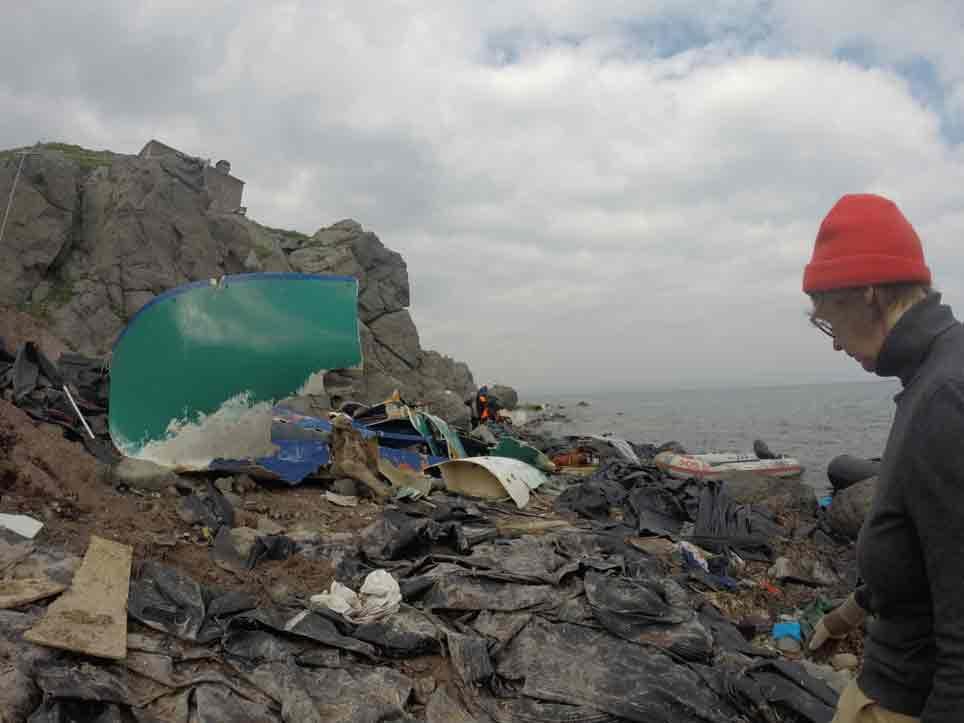
Warnings of violence
Interestingly, while volunteering, he wasn't warned of any violence from refugees, but was warned against Frontex. "There was an incident soon before I arrived, where a speedboat stormed down the channel through the Frontex patrol and was chased. The speedboat beached and the refugees began running up the hills. Frontex followed, on land. A Lighthouse volunteer went to intervene and was stopped by a Frontex Officer who told her; "watch out or I'll shoot you".
The Frontex officers are doing their jobs, he said, but their primary aim is to register these people and then ensure their warmth and safety. Volunteer organisations do it the other way around. There have been cases where Frontex would have a hypothermic patient waiting to be registered, and they would die.
The Lighthouse volunteer camp has no security, he said. "There were no robberies or thefts or anything like that. There's a relationship. We are there to help and they know we are there to help. We were told most of the refugees would be in shock on arrival".
"The refugee problem is still very much there. While the route currently used to reach Greece is now more heavily monitored, the crisis is far from over. Speaking with professionals in the field, they believe the crisis will last for another ten years".
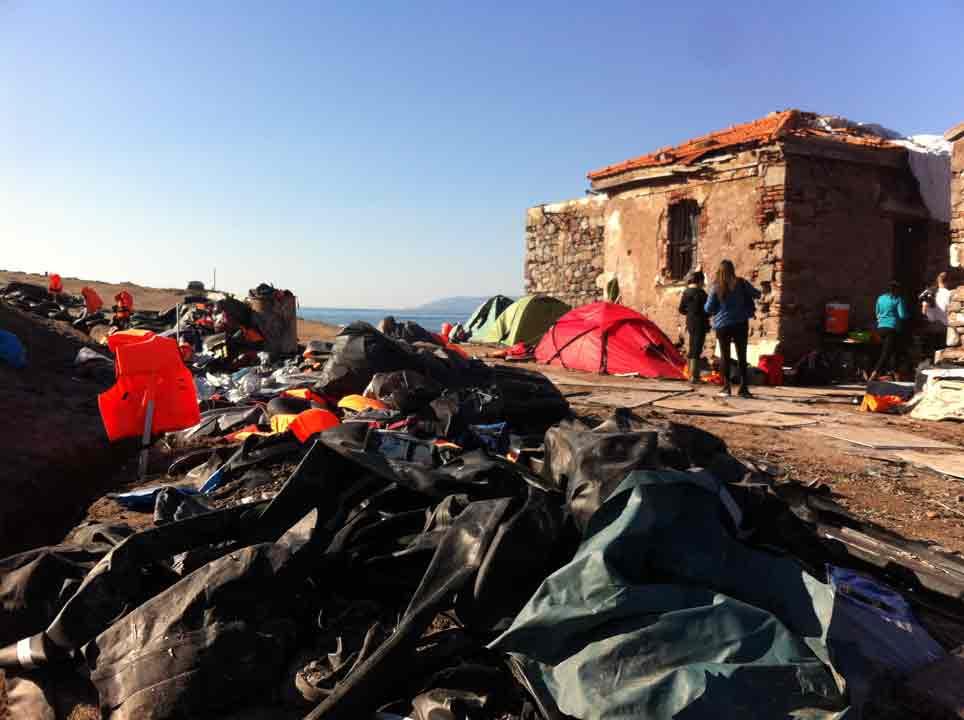
Andrew does not believe that Malta, physically, could do much more to help. "We're small, we can't take more in. Anyone saying 'let's just take them all' is being naïve".
He does, however, hope that the Maltese government should continue to speak in the European Parliament.